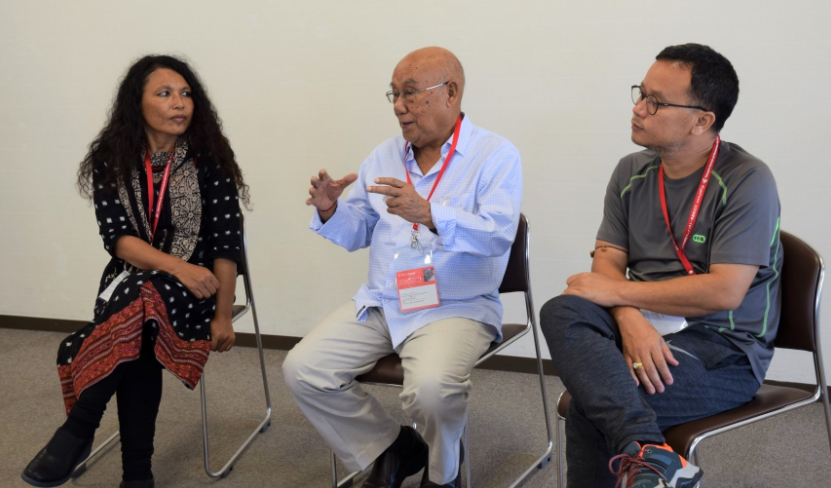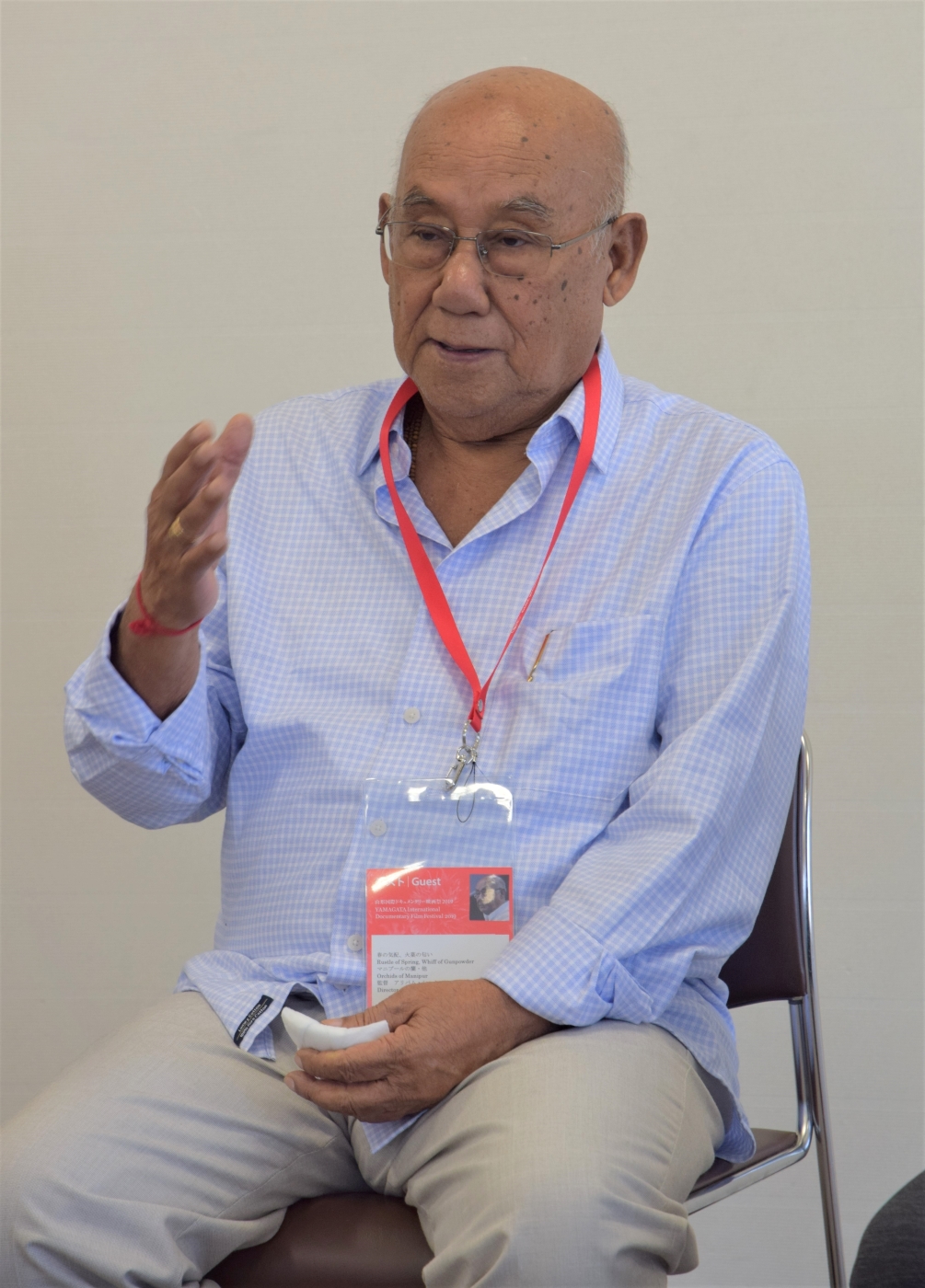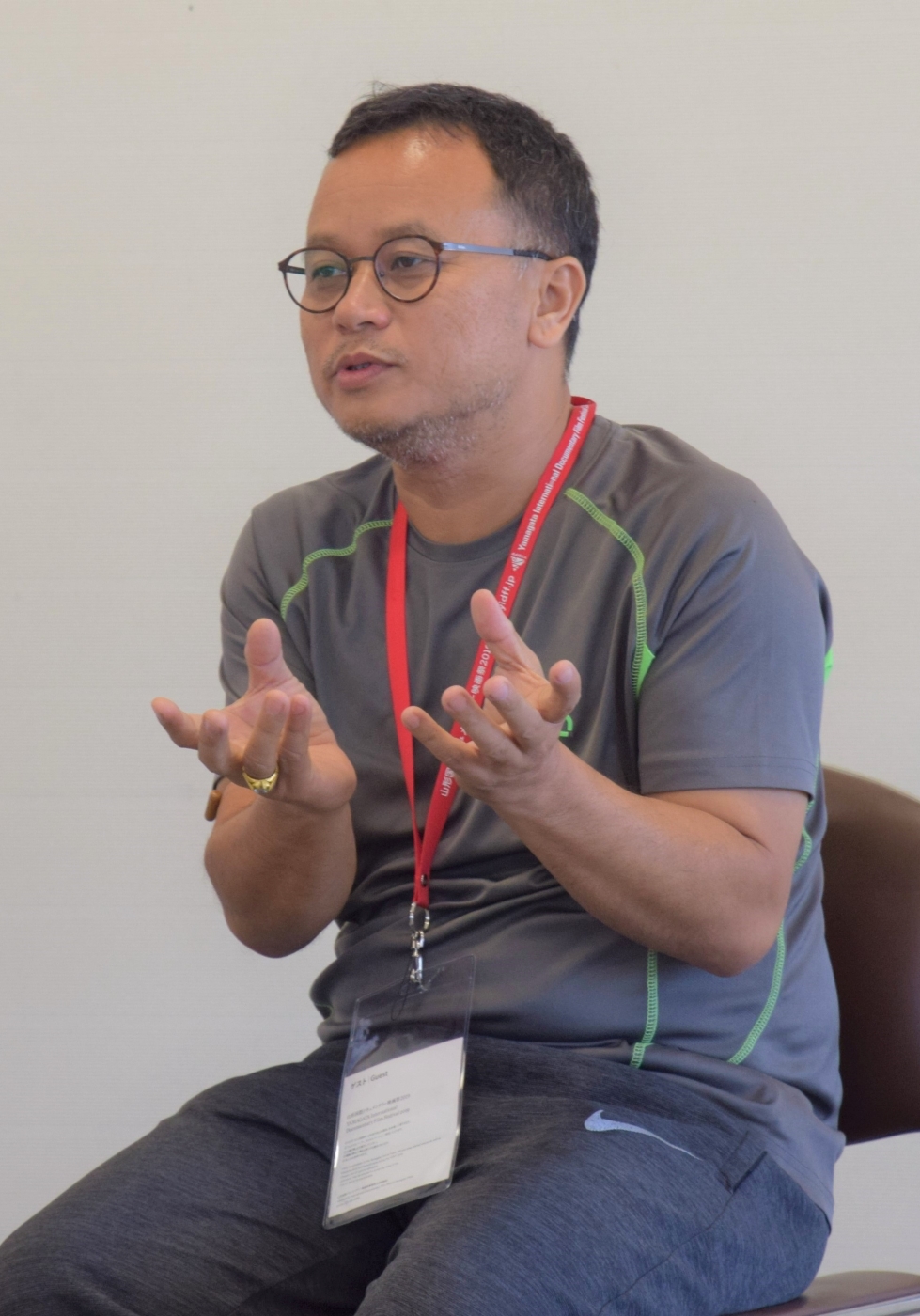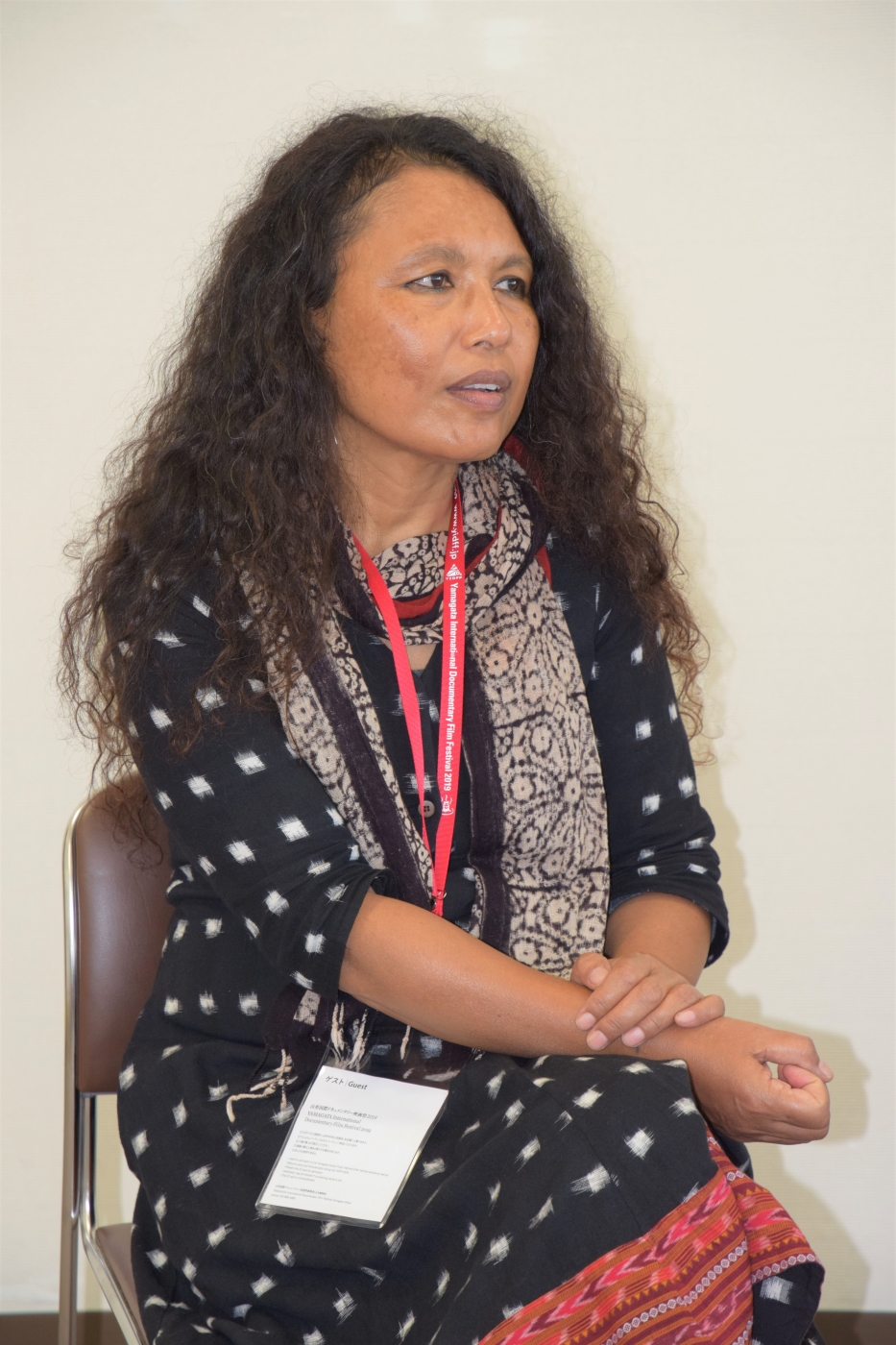Pinky Brahma Choudhury: I think the films from this program will give the Japanese audience a better context to understand India as a country, even just to know that there is a place in the Northeast of India where eight states are a little different than the rest of the country, and there are issues there that may not be well-known to the outside world. I hope that viewers can understand that there are different kind of people live in the Northeast, and that they can learn more about the problems, the aspirations, and the experiences of the people there. It’s also important to give a special focus on a certain area or a certain issue. That’s what I was expecting from this festival, and I think it’s happening. Audience members have told me that they didn’t know that something like this existed in India, so I think this is a very big step forward.
Haobam Paban Kumar: Even for us, this is an opportunity to increase understanding amongst the directors and people in Northeast India. Yui Nakamura with SPF’s Asia Peace Initiatives Department also said that she is planning to take this package of films to the rest of the eight states in Northeast India, which will be really wonderful. This is not just about Japan, but it is important for us as filmmakers to also understand each other. Especially with documentarians, we don’t get the chance to watch documentaries except at these kinds of special programs or festivals.
What do you see as the future of documentary filmmaking in Northeast India?
Pinky Brahma Choudhury: I feel it will only grow with digital media, which has made it easier to share films, especially online. Recently, I got an invitation to participate in a workshop in my village, so I was going through the blogs to see what the people like these days. There are a lot of songs and films shared online and a lot of blogging is happening. As time has gone by, people have begun talking more about their surroundings and have started commenting on social issues. I think people will continue to take this on, but I feel that there should be more help through workshops and festivals so they can get to know the potential of documentary films. We can help direct new filmmakers, not just people who are going to film school, but also general people who are making films
I also think that people are exploring new forms of storytelling so that they can talk about their own experience through their own eyes. Earlier maybe they were not so brave to speak out what they felt, but I think the trend is changing and a lot of people are able to express themselves very openly. I was really taken by one of the films at this festival, the one with the director who wanted to talk about his childhood memories. That makes me very hopeful.
Haobam Paban Kumar: I agree that it’s hopeful, but at the same time there’s no funding for documentary filmmaking, frankly speaking. A lot of new media is happening, so even if we are doing documentaries they will probably be smaller, maybe five to ten minutes long, which can be easily watched on the go. I think that people don’t have the time to watch a one-hour or two-hour long documentary. Also, I think the style is shifting toward what you might call a more “artistic” type of film. Definitely the Northeast is a place where a lot of things are happening, and with all of the new media and equipment, I think we will see more of these smaller films.
Also, I think that people are more open to talk about their realities, but I feel there are a lot of restrictions now. Maybe people will try to speak out against that, or maybe they won't be able to do that, but definitely it’s not going to get easy. If you look the number of films being made in the entire region in the last four or five years, I can count it as maybe only four or five documentaries. Also I’ve noticed that many independent filmmakers are shifting into fiction because there’s more recognition and money. It’s difficult because we don’t have any documentary distribution systems in India. There are thousands of channels for feature films and news, but not a single channel for documentaries. Even if you look at online platforms, you see very few documentaries.
Aribam Syam Sharma: In the past, making documentary films was expensive, so you had to be very careful. To take one short, I would have to think 100 times how to take it, where to take it, how to set the camera, the angle, the lens, and what should be the action. Now you can just take it 100 times. Filmmaking started from documentary films, so I believe documentary films will always exist. In many ways, we filmmakers are trying to express ourselves through filmmaking the same way poets are trying through poems and musicians are trying through music. It may be appreciated or it may not be appreciated, but there’s always an idea, which is very important. At the end of the day, human beings want to create, and I believe that this will continue.
For more about the Asia Peace Initiatives Department, please visit the
program page.
To learn more about the Yamagata International Documentary Film Festival, please visit the
official website.



